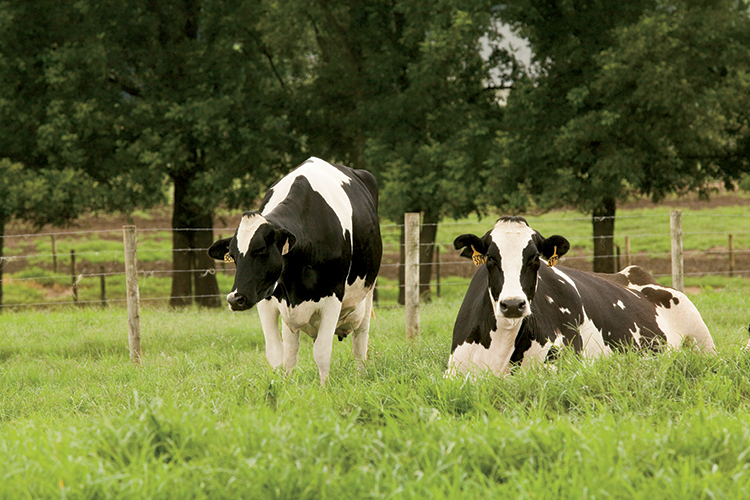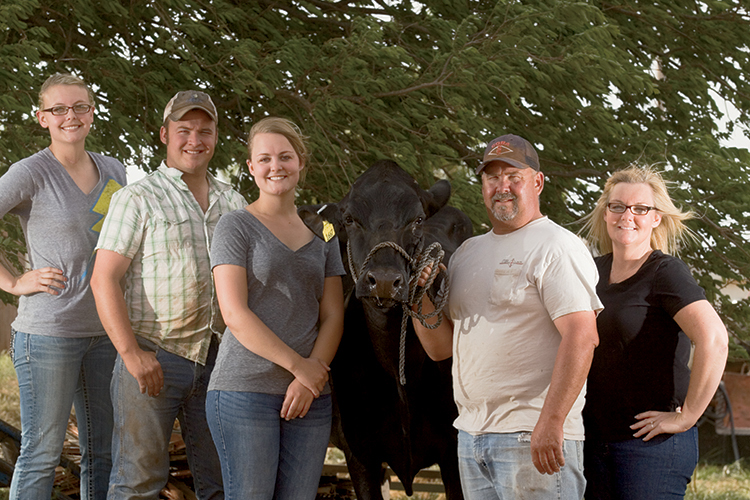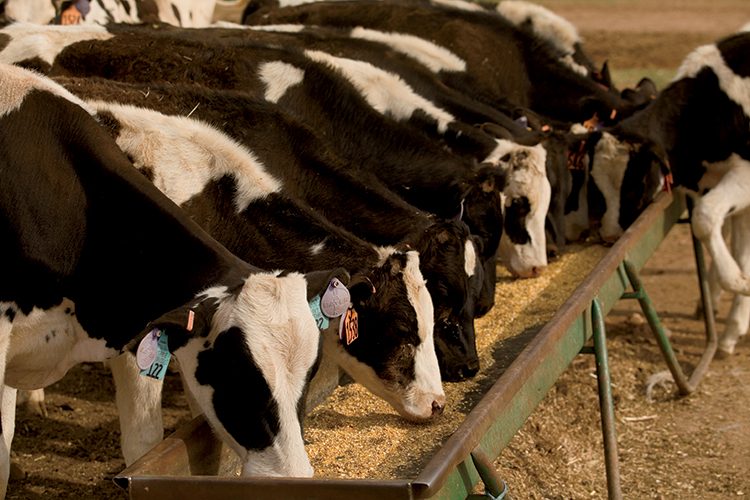Home > Oklahoma > Oklahoma Crops & Livestock > Oklahoma Dairy Farmers Dispel Myths About Animal Care
Oklahoma Dairy Farmers Dispel Myths About Animal Care

When an animal abuse video goes viral, the people hurt by consumer backlash aren’t usually the ones abusing animals. Instead, the videos often fuel the misconception among consumers that farmers don’t take good care of their animals.
With less than 2 percent of the U.S. population involved in farming today, animal abuse videos promoted by animal rights activists can be the only exposure to commercial agriculture some consumers ever get. Many Americans never set foot on a farm, and that makes it tricky to separate fact from fiction.
Farmers and agriculture workers in Oklahoma’s dairy industry understand they must take care of their animals to be profitable and to produce high-quality, wholesome dairy products. Dairy farmers care for their animals as if they were family, even though the average consumer doesn’t see what actually happens behind the scenes.
“I wish everyone could spend just one day on a dairy farm,” says Susan Allen, program manager at Dairy MAX Inc., a non-profit dairy council that represents more than 950 dairy farm families in Oklahoma, Kansas, New Mexico and Texas. “It doesn’t take long to realize that dairy farmers are genuine, compassionate and so knowledgeable about their cows. They have a gentle way about them, and you can tell the cows trust them.”
Allen says it’s especially fun to watch dairy cows line up and head to the milking parlor.
“Most of the time, there is a pecking order the cows have determined themselves, and if Buttercup is the leader – and a little bossy – she might be the first one in line every day,” Allen says.

Caring for Cows
Oklahoma dairy farmers care for their cows by providing a nutritious diet, healthy living conditions, clean and dry bedding, fresh water 24 hours a day and regular veterinary care, including periodic check-ups, preventative vaccinations and prompt treatment of illnesses. A cow being treated with antibiotics is separated from the milking herd so her milk does not enter the food supply, and she is not reintroduced to the herd until the antibiotics have cleared her system.
Tom and Angie Meyer own M6 Dairy Farm LLC , located east of Okarche. They milk 160 registered Holstein cows twice a day and market their Grade A milk to Dairy Farmers of America. Tom is a third-generation dairy farmer, and the couple has raised four grown children on their farm – Megan, Lauren, Joshua and Kristen.
“The barn that we milk in was built in 1972, and we raised our kids in that milk barn,” Angie says. “I love that we have been able to spend quality time with our kids. We worked together, prayed together and played together. Plus, my children have a great work ethic.”
Angie says she can’t imagine anyone who didn’t care for animals would even enter the dairy business.
“Dairy farmers have a genuine care and concern for their herd, much like for their own family members,” she says. “It disgusts me to see [animal abuse] videos. My cattle are like my kids to me. They each have names and a personality. Our animals receive daily hands-on care from the day they are born.”

Hard but Rewarding Work
The Meyers hand-feed their calves with milk, grain, hay and water daily and provide clean bedding, housing and medical treatment when needed.
“Shade and fresh water are a must in this Oklahoma heat,” Angie says.
Tom and Joshua (who has recently purchased cows and renovated the milk barn to become the fourth generation dairyman) and one full-time employee oversee the daily milking process, which begins at 4 a.m. and takes about three hours each time.
“When the cows are milked, the cleaning process in the barn begins,” Angie says. “Our milk is picked up daily, therefore our chill tank is washed and sanitized daily. So are the milking units and pipelines to ensure we produce a safe, healthy product.”
Allen says she enjoys working in the dairy industry because she gets to work closely with dairy farmers.
“Nobody works harder than them,” she says. “They don’t get a day off, and many of them don’t take vacations. We laugh that their vacation is a dairy show, but they have to be home in time to milk – or have a neighbor milk for them.”



